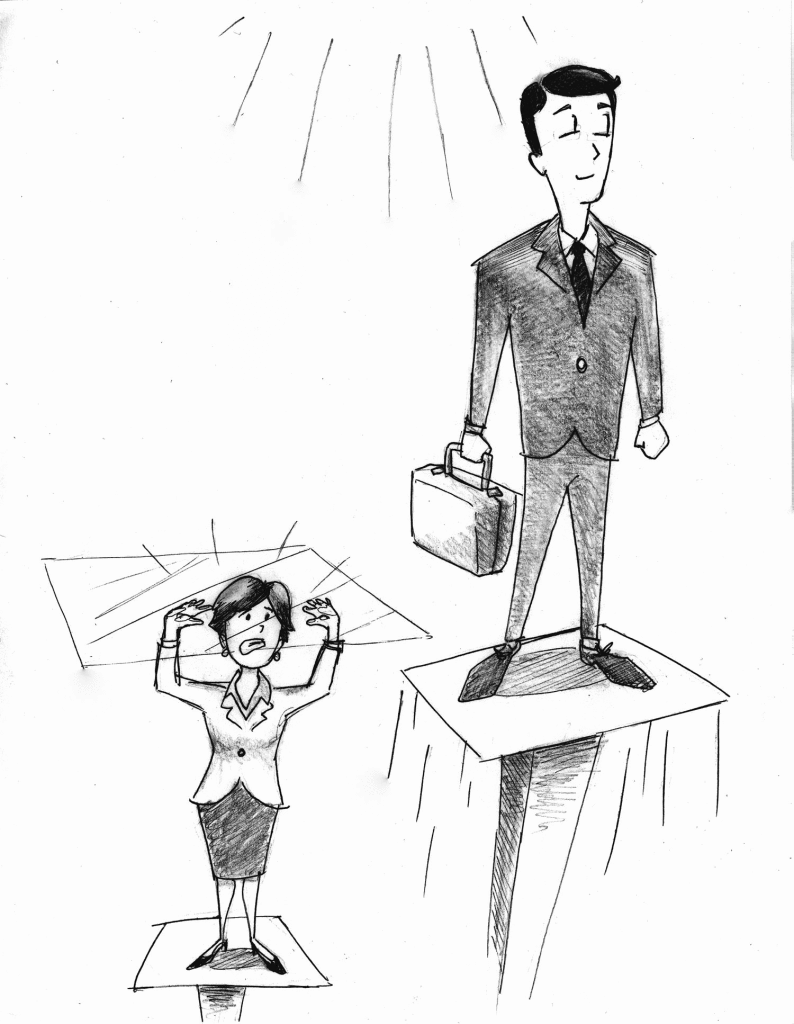Sexism exists today and it’s not fair, but the thing about it is: life isn’t fair. It’s one of those crossroads you come to where you have to pick and choose your battles. If you feel you’re being treated unfairly, nobody is forcing you to put up with it. If you think that you’re being denied a promotion, or a salary increase because of your sex, then do something about it, find a new job or do whatever it may be that will make you happy.
The word “sexism” is defined as “attitudes or behavior based on traditional stereotypes of sexual roles and discrimination or devaluation based on a person’s sex, as in restricted job opportunities; especially, such discrimination directed against women,” according to dictionary.com.
Sometimes what one may consider sexism could be just a communication gap between the two sexes. “Men are usually more straightforward and women are more emotional,” says 21-year old psychology student Benny Evien. “[Sexism] seems like more of a female problem.”
Sexism in the workplace is no longer the immense issue that it once was. Women still only earn 80 cents for every dollar made by their male counterparts, according to a 2003 General Accountability Office congressional briefing. Yet, that is a 21-cent increase compared to the 59 cents per dollar that they were making in 1963, as reported by the National Committee on Pay Equity.
I find it impossible to envision a society devoid of discrimination. Realistically speaking, people who think they are part of something greater, that they are better than someone else, will always exist. There are going to be people who wholeheartedly agree with the gender roles that have been defined for us: women as the nurturing caregivers and men as the tough guys.
Gender inequality exists because as children, society conditions and teaches us to embrace our gender specific roles, keeping us from straying away from what is expected of a man or a woman, according to psychology department faculty member Dr. Mary Fraser.
“We live in a patriarchal society” says Fraser. Women participate in their own oppression.”
Fraser notes the 1994 study by Hannah Riley Bowles, an assistant professor of public policy at Harvard, which exposed differences between sexes regarding the tendency to initiate compensation negotiation.
Bowles’ study found that “when men were evaluating female job candidates, they were significantly more likely to want to work with a woman who accepted her compensation offer without comment. They perceived the women who attempted to negotiate as less nice and overly demanding. It didn’t matter to the men if a male candidate attempted to negotiate for higher compensation or not.”
I am guilty of discriminating against the gender myself. It’s those distant childhood memories that taught me and the rest of society to be sexist individuals. Those memories of myself as a young girl playing with Barbie dolls, or my male cousins playing with Lego blocks and having that unexplained fascination of police officers and fire trucks.
Even if it isn’t outright sexism, gender discrimination and conformity to gender roles is still seen today. That awkward look that a stay-at-home dad may get, or the notion that a power-female such as public relations icon Kelly Cutrone, is rude or imposing solely because of the fact that she isn’t afraid to use her voice. If she were a man, there wouldn’t be an issue with her demeanor, but because she’s female, she’s expected to be more modest.
The double standard is always going to exist but it’s up to the individual to either come to terms with it, or do something about it. Whining and complaining about the wage gap or sexist behavior in the office isn’t going to beget change. Using your voice will.









